Are you looking to streamline your communication with clients in a social service setting? A well-crafted letter template can make all the difference in ensuring clear understanding and building trust. Whether you're notifying a client about their case acceptance or providing them with valuable information, having a professional yet friendly tone is key. Dive into our article to discover a sample letter template and tips that can enhance your client interactions!

Personalized greeting and agency contact information.
Personalized greetings foster connection in social service agency settings. A well-structured letter includes vital information for case acceptance. The agency must clearly state its name, such as Helping Hands Community Services, and provide contact details like telephone number (555-0123) and email address (info@helpinghands.org). Additionally, including a physical address, for example, 123 Community Lane, Springfield, enhances transparency. Personal touches like the caseworker's name and specific case details, including unique case number (e.g., #2023-045), solidify the individualized approach. A clear statement of acceptance and next steps, along with available resources, is crucial to guide clients through the process.
Clear statement of case acceptance and agency involvement.
The social service agency has officially accepted the case for John Doe, a 32-year-old resident of Springfield facing homelessness due to recent job loss. The agency will provide comprehensive support services, including housing assistance, job placement programs, and mental health counseling. The involvement of the agency aims to empower John to achieve stability and self-sufficiency within the next six months, utilizing resources such as local shelters and employment workshops available in the Springfield area. Each step of the process will be closely monitored to ensure effective progress and timely interventions as needed.
Overview of services offered and client responsibilities.
Social service agencies provide a range of essential services aimed at improving the well-being of individuals and families facing various challenges. Services often include case management, counseling, housing assistance, and financial support programs, tailored to meet specific needs within the community. Clients are typically responsible for actively participating in the service plan, maintaining open communication with caseworkers, attending scheduled appointments, and providing necessary documentation for eligibility verification. Understanding these responsibilities is crucial for successful engagement in the program. The collaborative approach between clients and the agency helps facilitate positive outcomes and fosters empowerment within the service framework.
Confidentiality and privacy information.
Confidentiality is a fundamental aspect of case acceptance within social service agencies. Client information, including identifying details and sensitive personal data, is protected under laws such as the Health Insurance Portability and Accountability Act (HIPAA) in the United States. Agency staff members, including caseworkers and administrative personnel, must adhere to strict guidelines to maintain privacy, ensuring that client records are securely stored. Confidential discussions may occur in designated private spaces, safeguarding the client's dignity and trust. Any disclosure of case information requires informed consent from the client, which emphasizes respect for individual autonomy. Agencies may also utilize de-identified data for reporting and analysis purposes, enhancing service provision while preserving client anonymity. Robust training on confidentiality protocols for staff is crucial to minimize risks of breaches and maintain the integrity of the support provided.
Contact details for case manager or primary contact person.
The case acceptance process at social service agencies typically involves detailed documentation of the situation to ensure appropriate support for individuals or families in need. Case managers are essential for guiding clients through available services, assessing needs, and monitoring progress. A case manager often possesses qualifications in social work, psychology, or counseling, ensuring a comprehensive understanding of client issues. The primary contact should be accessible, providing phone numbers and email addresses, facilitating communication between clients and the agency. In-person meetings may occur at locations, such as community centers or agency offices, allowing for confidential discussions. Key databases often track client information, ensuring accurate service delivery. Maintaining updated contact details is critical to minimizing lapses in communication and ensuring uninterrupted assistance.
Letter Template For Social Service Agency Case Acceptance Samples
Letter template of social service agency assistance eligibility confirmation
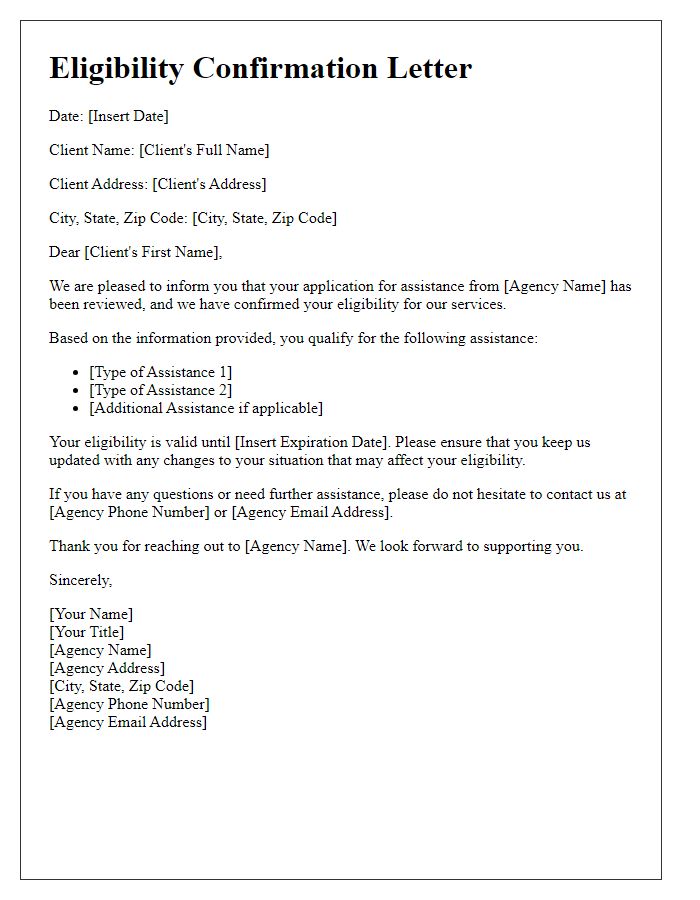

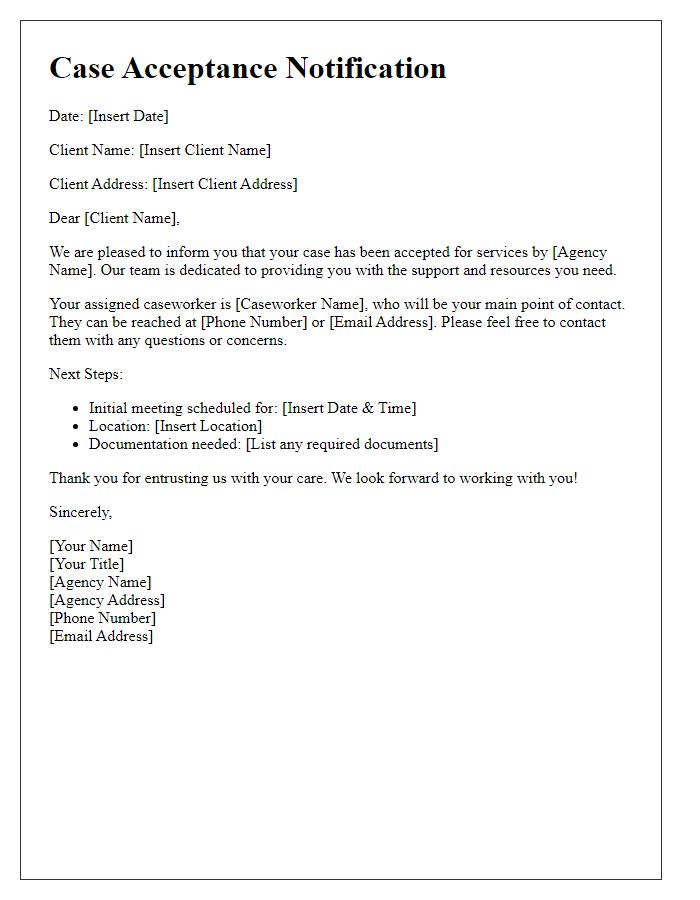
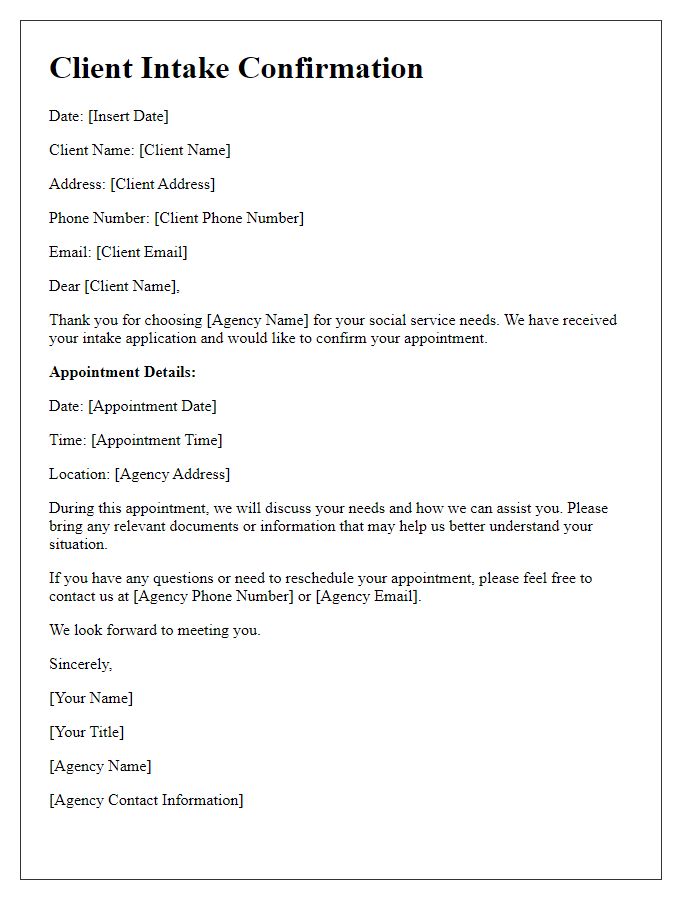
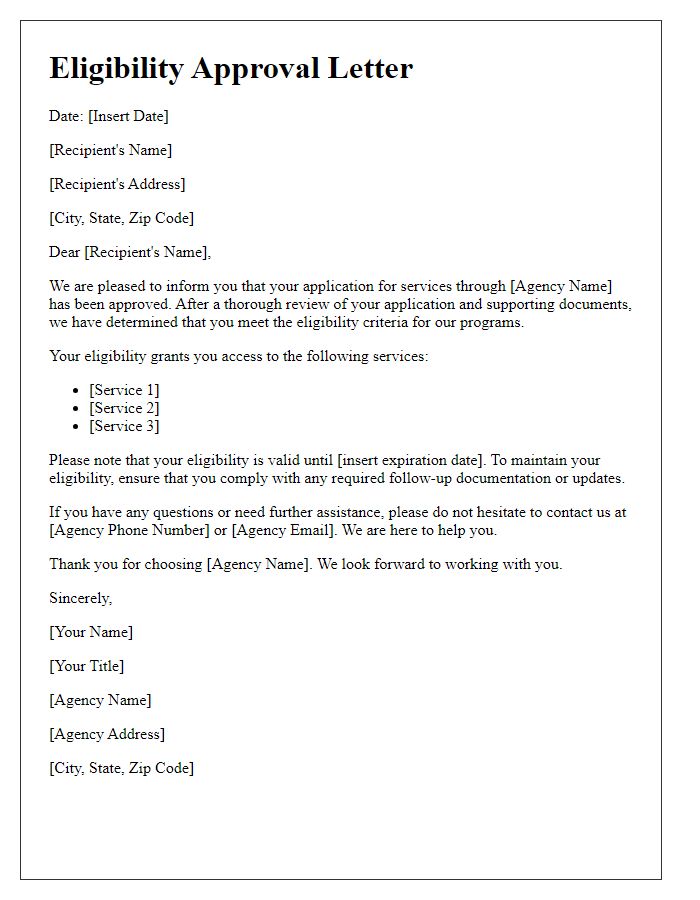
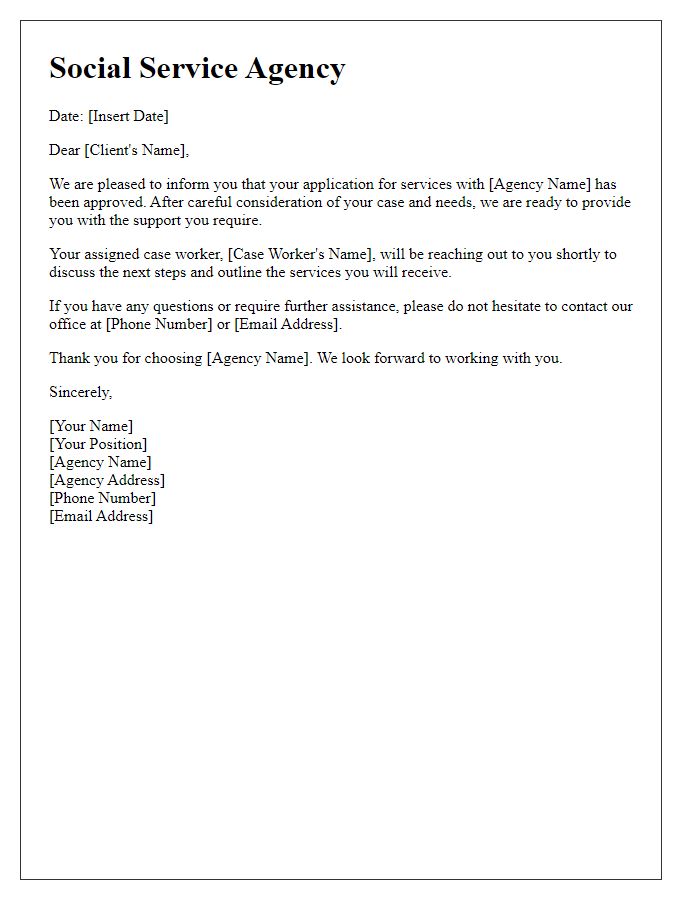
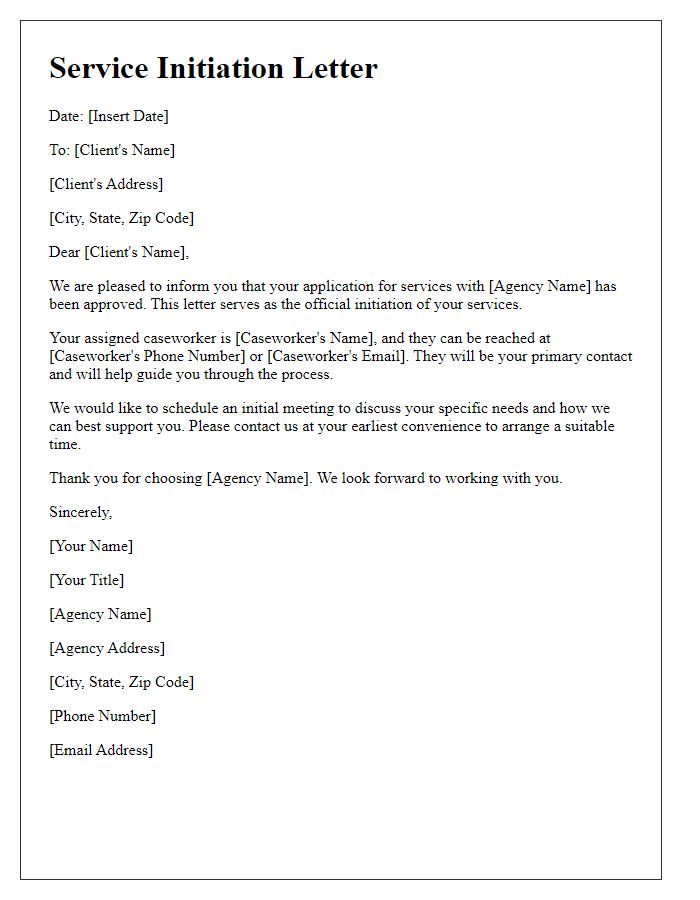
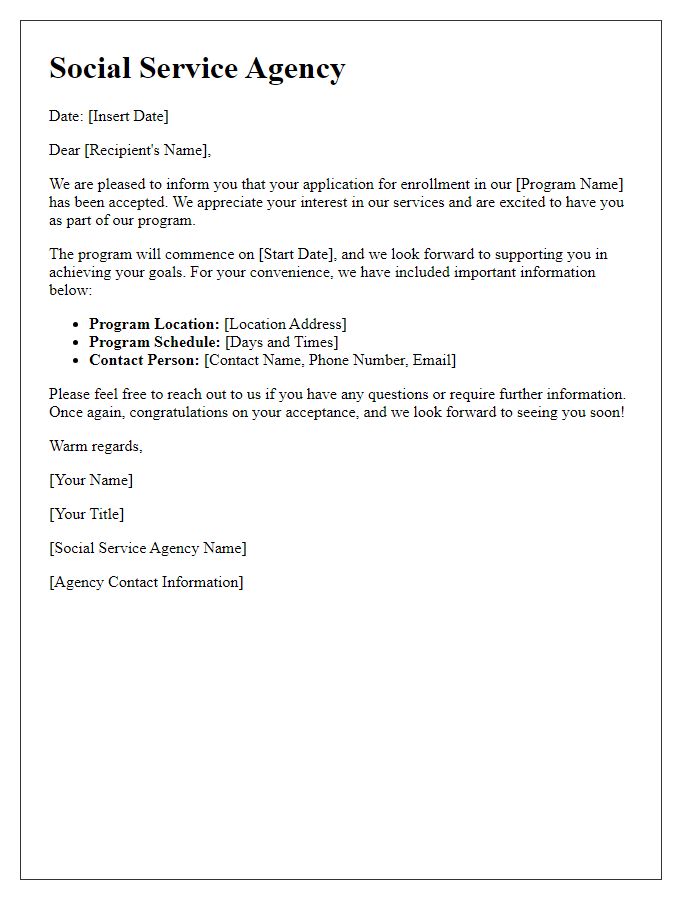
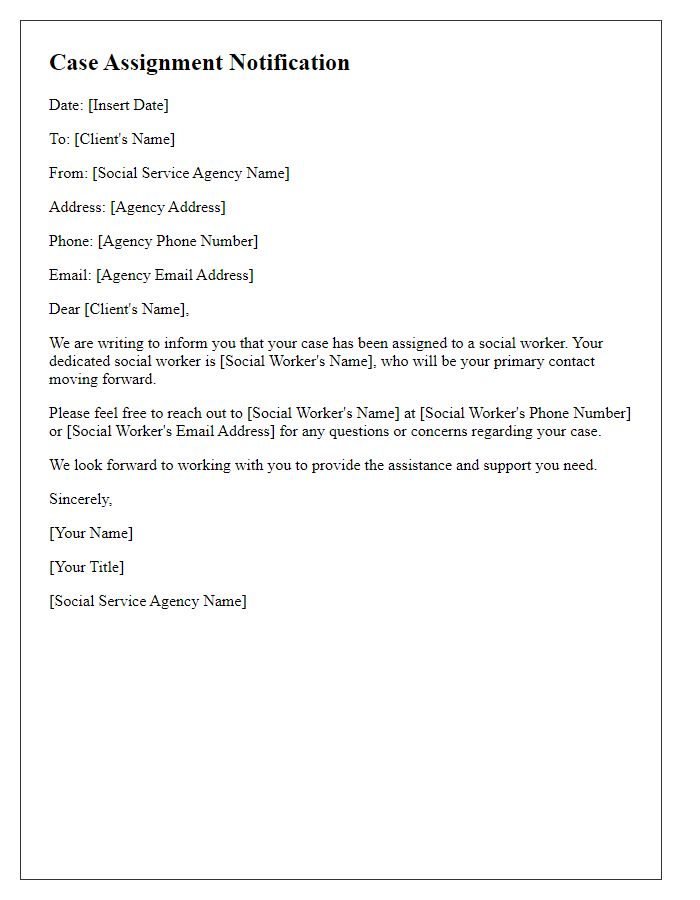
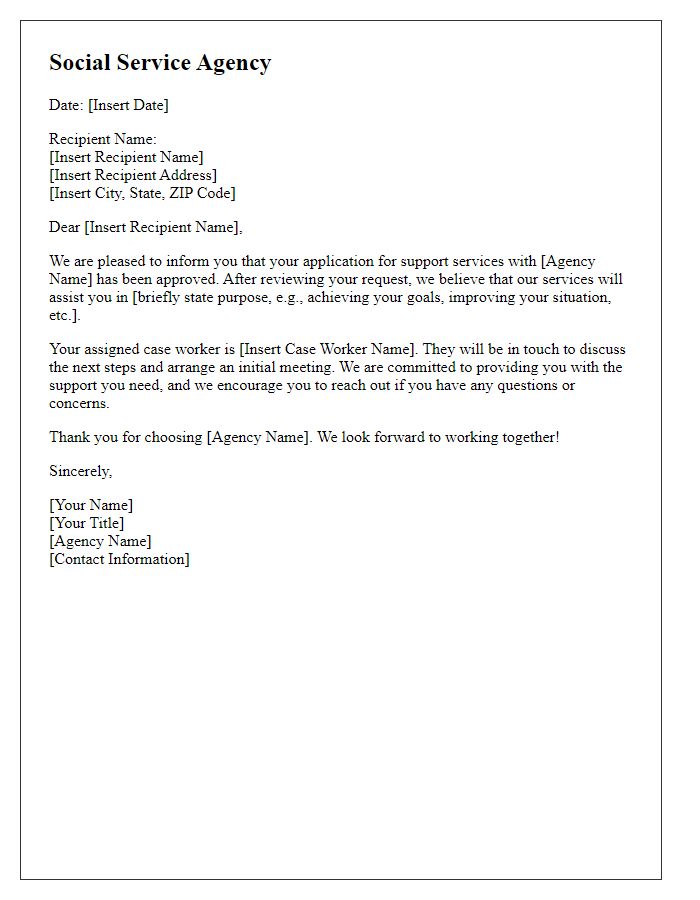
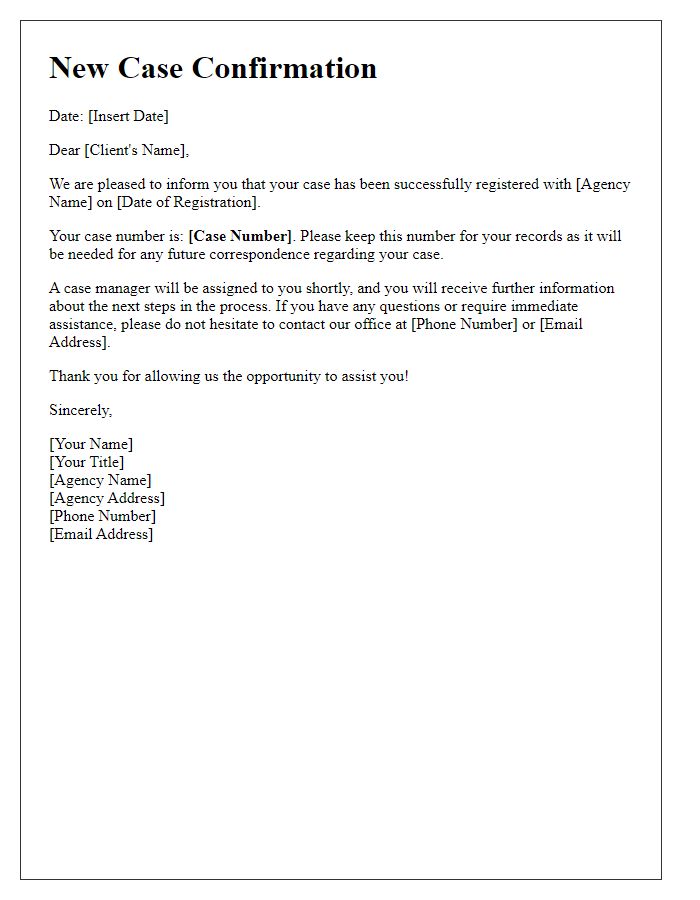


Comments